by Piritta Poikonen, VLCE
posted Sep 29, 2020
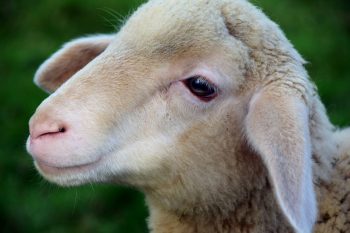
On a cold winter’s day, it feels so nice to put on some warm socks and wrap a cozy scarf around you. Knitting is also a very dear hobby to many. One rarely comes to think of the ethical and ecological problems related to producing the wool garments and yarns.
For many, wool is one of the last things we ditch when becoming a vegan. We are used to thinking that taking the wool from a sheep is just like getting haircut. But no, the shearing process is a struggle where animals often get cut and bleed.
That’s not even the worst part of lamb wool production! Most Merino sheep undergo a painful process called mulesing where large chunks of skin and flesh are cut from around the rear end. When this wound heals, it creates an area of bare scar tissue which is less likely to attract blowflies. Merino sheep have been engineered so that they have unnatural amounts of wool-bearing skin. The dense, urine- and feces-encrusted skin folds around the rear ends make the Merino sheep a target for the blowflies that have always afflicted sheep in Australia, the leading lamb wool producer in the world. So the Merino sheep have to either go through mulesing or be attacked by pests throughout their entire lives.
In addition, sheep raised for their wool don’t go “out to pasture” for retirement. The are killed for meat, the majority of those in Australia first being shipped for slaughter to the Middle East — often to countries where animal welfare laws do not exist.
There are already vegan alternatives for handcraft yarns and many fabrics are made without any animal products involved. We can use, for example, cotton, bamboo, and artificial fibers.
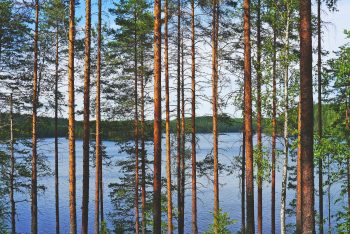
I’m personally very interested in the textile and yarn innovations where the fiber is derived from timber. I live in Finland where we have lots of forests with plenty of coniferous trees and a long history of producing pulp and paper. Nowadays, the most promising developments within the forest industry are very high-tech, ranging from bio-based energy to nanotechnologies.
Some wood-derived textile fibers have shown in testing to be as warm as sheep’s wool and when you touch these new fabrics, your fingers cannot tell the difference. The outcome of the process is white and fluffy, and the filament is firm. The fiber is suitable for spinning into yarn and knitting or weaving into fabric or non-woven materials. Its stretch and strength qualities are very similar to those of cotton. Depending on the application, the fiber can made water repellent or absorbing.
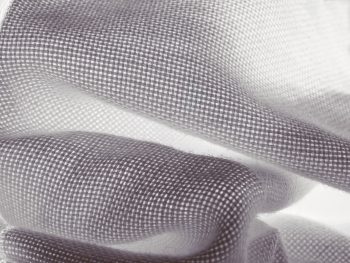
This is all very exciting—and as always, with vegan choices you get at least two benefits for the price of one. First, with these innovations, the torturing of sheep can stop, and second, huge ecological improvements are achieved.
Industrial wool farming is energy-inefficient, land- and water-intensive, and pollutive. Cotton production methods are also environmentally unsustainable. But these new technologies using the Nordic forests for textile production are truly amazing. For example, a Finnish company, Spinnova Ltd., has developed a process which is extremely low in energy and water consumption, using 99% less water in their process as compared to cotton. They use no harmful chemicals, and their process is waste-free.
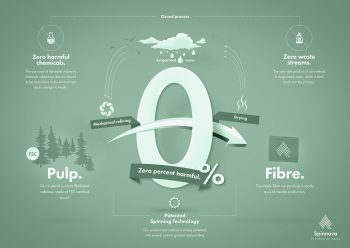
Finland’s forest industry is sustainable and regulated. Forests grow basically on their own without irrigation or fertilizers. The forest soil is best suited for growing trees whereas many cotton fields could be used for food production. In Finland, laws require that a new forest is planted after a forest is cut down.
If you are interested in positive developments, I recommend these two books. The first one is Factfulness by Hans Rosling. It shows concrete examples that the world is in a much better state than we might think. The other one is Abundance: The Future is Better Than You Think, by Peter Diamandis and Steven Kotler. This book introduces dozens of innovators making tremendous improvements in the areas of water, food, energy, healthcare, education, etc.
We vegans are often surrounded by horrible info about animal abuse and frustrating facts about wasting the planet’s resources. But there is also good news and it’s empowering to know that we are on the good side—and we are not alone. Many engineers and researchers are also working to make the world a better place for all living beings.
For more information:
spinnova.com
metsaspring.com/production-started-at-unique-textile-fibre-demo-plant/
ioncell.fi

Piritta Poikonen is a Main Street Vegan Academy certified Vegan Lifestyle Coach and Educator living in Finland. She has a Master of Laws degree from the University of Helsinki and a minor in food economics. She works at Finance Finland, specializing in life insurance and pensions. She likes AC/DC, knitting, reading, and nail polishes, and believes that technological innovations will play a big part in saving the planet. Find Piritta on Instagram @piritta_poikonen

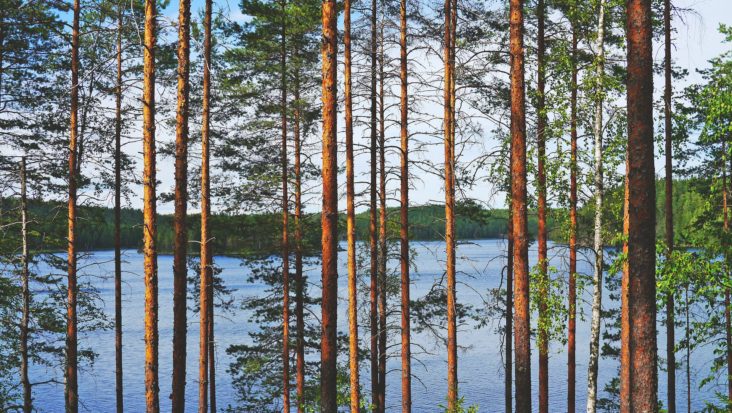
I think offering “artificial fibers” is irresponsible given our climate crisis. I also think suggesting trees as an alternative is unsustainable. They take tens of years to grow and provide homes to many creatures, sequester water, provide oxygen, etc.
Why not suggest hemp and bamboo, the fastest growing, least environmentally-damaging fibers? There are also coconut fibers and experiments are ongoing with corn husk fiber.
Also, purchasing used clothing is the most sustainable thing of all, and the least expensive in these trying times! There is zero environmental and ethical impact with reusing wool items that are already in existence.
Dear Piritta,
Thank you SO much for this fantastic article! I am vegan in my food style but like you said…I am slowly transitioning my leather boots and bags to vegan as well as sweaters. This was so informative. Thank you. The clothing and shoes/bags is challenging. Do you happen to know of any websites/businesses that sell quality vegan shoes/boots/purses/bags and sweaters? Thank you. Oh…and I noticed you’re a nail polish lover…I am so concerned about toxins within our beauty products and have also been trying to transition to “healthier” beauty products and nail polish is a tough one…very toxic…but I miss my nailpolish! Do you like a particular brand? Some are less toxic than others…but I always wonder if they even the healthier ones are safe. Thank you.❤️????????